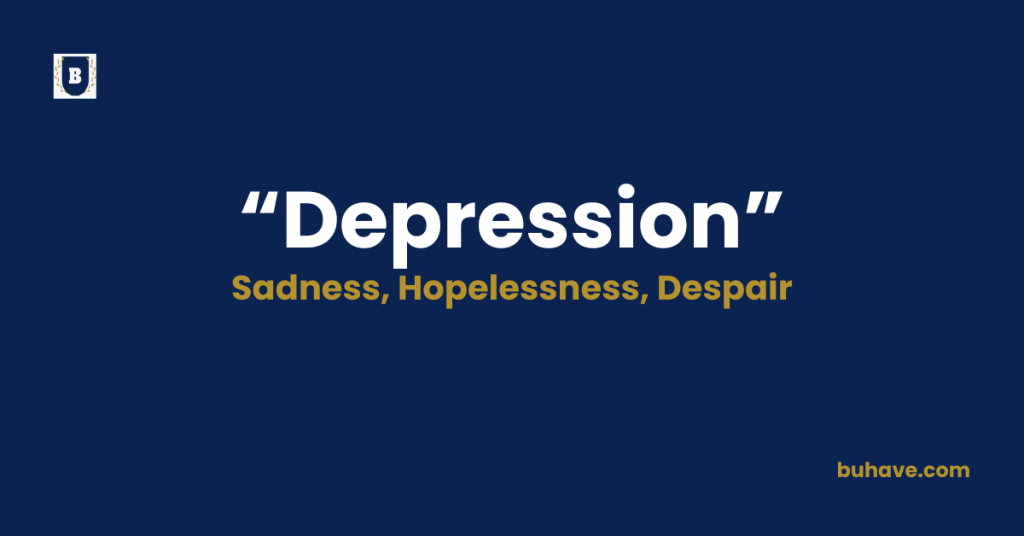The word ‘Depression’ (Noun) refers to a state of deep sadness, hopelessness, or low spirits that can affect a person’s mood, thoughts, and overall sense of well-being. In this guide, you’ll learn the full definition, synonyms, antonyms, etymology, and real-life examples of how to use ‘Depression’ correctly in sentences.
Depression Explained in Depth
A complete and detailed guide to the word Depression including meaning, definition, examples, etymology, synonyms, and antonyms.
Meanings of Depression
Depression means to a state of deep sadness, hopelessness, or low spirits that can affect a person’s mood, thoughts, and overall sense of well-being. It can range from a temporary feeling of sadness to a severe, long-term mental health condition. For example, someone might experience depression after losing a loved one, facing a major life change, or dealing with overwhelming stress.
Clinically, depression can also refer to a medical condition diagnosed by mental health professionals.
Definition
Depression refer a prolonged state of sadness, despair, or lack of interest in life. It can refer to a general emotional low or to a mental health disorder characterized by persistent feelings of sadness, emptiness, and hopelessness that interfere with daily functioning. For instance, a person with clinical depression might feel unmotivated, have trouble sleeping, and lose interest in activities they once enjoyed.
Etymology
The word “depression” comes from the Latin deprimere, meaning “to press down.” It combines:
- de- meaning “down”
- primere meaning “to press”
Originally, it meant “a pressing down” physically but later came to refer to an emotional state of feeling “pressed down” or low in spirits.
Example Sentences
- After months of isolation, he felt himself slipping into depression.
- The loss of her job triggered a wave of depression that she found hard to shake off.
- Despite the sunshine, a deep depression settled over the town after the tragedy.
Depression Synonyms
- Sadness
- Despair
- Hopelessness
- Misery
- Melancholy
- Gloom
- Dejection
- Despondency
- Downheartedness
- Low spirits
Depression Antonyms
- Happiness
- Joy
- Contentment
- Optimism
- Cheerfulness
- Exuberance
- Delight
- Confidence
- Encouragement
- Hopefulness
FAQs about Depression
- What does “depression” actually mean?
“Depression” refers to a state of deep sadness or a mental health disorder that causes persistent feelings of hopelessness and loss of interest
in life. - Is depression always a mental illness?
Not always. While “depression” can refer to a diagnosed mental health disorder, it can also describe a temporary feeling of sadness or low mood. - Can depression be treated?
Yes. Depression can often be treated effectively through therapy, medication, lifestyle changes, and support from loved ones. - How is “depression” different from “sadness”?
“Sadness” is a normal, temporary emotion. “Depression” is a more intense, long-lasting state that can affect daily life and overall well-being. - Can I use “depression” in everyday conversation?
Yes, but be mindful of context. If referring to clinical depression, it’s helpful to use respectful language to reduce stigma.

















